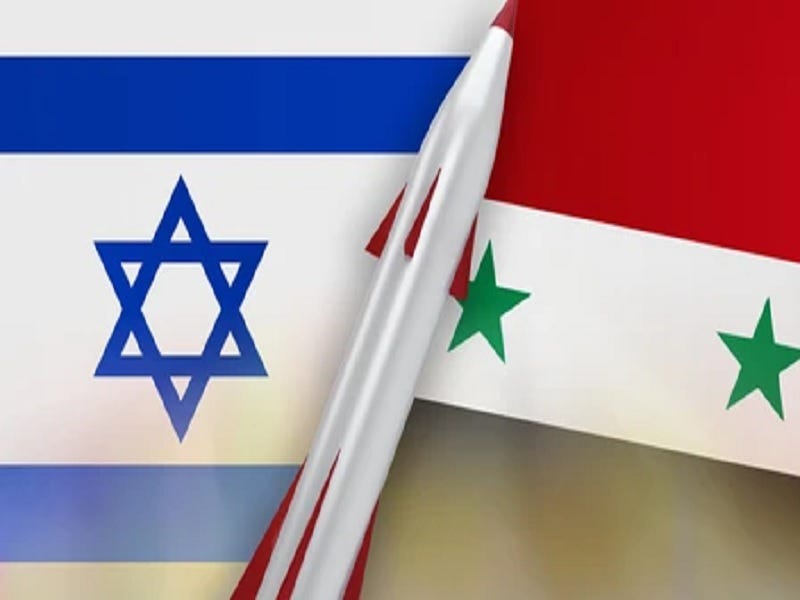Ten Observations About Israel’s Latest Spree Of Strikes Against Syria
Israel’s latest spree of strikes in Syria is driven by the combination of regional systemic processes, US-exacerbated domestic pressure, and the self-professed Jewish State’s rivalry with Iran. This context makes everything more explosive than ever, thus meaning that Moscow must tread carefully with its balancing act between the Arab Republic’s many stakeholders if it’s to successfully manage their competition and prevent the outbreak of a war by miscalculation.
Israel just bombed Syria for the third time in four days, thus prompting questions about what’s really behind this latest spree of strikes against the Arab Republic. As usual, media reports claim that the self-professed Jewish State was targeting Hezbollah and/or Iran’s Islamic Revolutionary Guard Corps (IRGC), which might very well but true but clearly there’s more to it considering the frequency of these attacks. What follows are ten observations about the larger context, after which a brief analysis will be shared:
----------
1. Iran Is In A Much Better International Position Than Ever
The Chinese-mediated Iranian-Saudi rapprochement peacefully resolved one of the region’s worst security dilemmas while growing Russian-Iranian military ties bolster the Islamic Republic’s deterrence capabilities in the face of conventional state-level threats like those posed by Israel.
2. The Arab States Are Patching Up Their Problems With Syria
The UAE’s pioneering rapprochement with Syria half a decade ago paved the way for reports about neighboring Saudi Arabia’s intent to patch up its problems with Syria sometime after Ramadan this spring, which preceded similar reports about those two’s Egyptian ally seeking the same as well.
3. Israel Has Thus Far Resisted US Pressure To Provoke Russia
Russia’s Deputy Permanent Representative to the UN praised Israel in late January for continuing to resist US pressure to arm Kiev and thus provoke Moscow, which was an impressive display of geopolitical pragmatism and strategic autonomy by the self-professed Jewish State.
4. The US Is Prioritizing Russia & China’s “Containment” Over Iran’s
The latest phase of the New Cold War brought about by the past year’s events resulted in the US prioritizing its “containment” of the Sino-Russo Entente over Iran, which led to that declining unipolar hegemon comparatively pulling back from West Asia, thus leaving a vacuum that’s being filled by others.
5. Israel’s US-Backed Color Revolution Has Thus Far Failed
The US exploited preexisting grievances in Israel in an attempt to oust Netanyahu as punishment for his refusal to provoke Russia, to signal its dislike of his polar opposite ideological worldview vis-à-vis the Biden Administration, and to restore some of its receding regional influence, but it thus far failed.
6. Israeli-US Relations Remains Tense Amidst Continuing Hybrid Threats
Netanyahu subsequently suggested that the US was indeed behind Israel’s latest Color Revolution unrest in a series of tweets last week after postponing his planned judicial reforms as a de-escalation measure, yet this hybrid threat remains in effect seeing as how the weaponized protests didn’t abate.
7. The Emphasis On External Threats Is A Typical Distraction Tactic
Generally speaking, governments that find themselves under increasing domestic pressure tend to emphasize external threats in an attempt to unite the populace by diverting their anger towards a foreign target, which could be the case with Israel’s strikes in Syria considering their convenient timing.
8. The Russian-Israeli Deconfliction Mechanism In Syria Remains In Effect
It’s also important for observers to note that the deconfliction mechanism agreed to between Russia and Israel over Syria in September 2015 remains in effect as evidenced by Moscow continuing to keep the S-300s out of Damascus’ hands, thus giving Tel Aviv de facto free rein over that country’s skies.
9. Russia Is Trying To Triangulate Between Iran-Israel & Iran-Turkiye In Syria
Iran, Israel, and Turkiye are pursuing different strategic goals in Syria but all four have common ground in regarding Russia as their strategic partner, which enables Moscow to attempt a complex dual-triangulation between Iran-Israel and Iran-Turkiye in an attempt to stabilize their competition there.
10. It’s Increasingly Difficult To Balance The Interests Of Syria’s Stakeholders
West Asia’s rapidly evolving regional dynamics that were hitherto described are converging in Syria and thus making it increasingly difficult for Russia to balance the interests of all that country’s stakeholders, which raises the risk that developments might soon spiral out of control if they aren’t kept in check.
----------
The abovementioned insight strongly suggests that Israel’s latest spree of strikes in Syria is driven by the combination of regional systemic processes, US-exacerbated domestic pressure, and the self-professed Jewish State’s rivalry with Iran. This context makes everything more explosive than ever, thus meaning that Moscow must tread carefully with its balancing act between the Arab Republic’s many stakeholders if it’s to successfully manage their competition and prevent the outbreak of a war by miscalculation.




